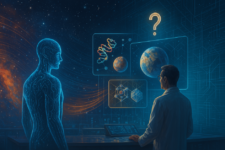
Amazon has recently announced its latest venture in AI: a specialized laboratory in San Francisco dedicated to developing AI agents. While current AI systems excel at processing information and generating responses, the next generation of AI needs to do something far more challenging: take meaningful action in both digital and physical spaces.
Think about the difference between an assistant that can tell you how to book a flight and one who can actually book it for you. Or between an AI that can explain code and one that can write and debug it in real-time. That is the gap Amazon is aiming to bridge.
Teaching AI to Navigate Our World
The vision behind this initiative goes far beyond simple task automation. The goal is an AI system that does not just understand your request but truly grasps your intentions and executes complex workflows across multiple platforms and environments. The Amazon lab is tackling this challenge head-on, focusing on teaching AI systems to interact with computers, navigate web browsers, and even interpret code – all while learning from human feedback and adjusting their approach in real-time.
We are moving from systems that are essentially sophisticated pattern matchers to ones that can engage with the world as active participants. Industry analysts are taking notice – with projections suggesting this sector could reach $31 billion by year’s end.
But what makes this particularly fascinating is the timing. We are at a unique intersection where computational power, algorithmic sophistication, and real-world applications are converging. According to recent industry surveys, an overwhelming majority of organizations – more than 80% – are planning to integrate AI agents into their operations within the next three years.
Consider how we currently interact with software: we learn each new tool, memorize its quirks, and adapt to its limitations. The promise of AI agents flips this relationship – instead of humans adapting to software, AI agents could adapt to humans, understanding our natural language instructions and handling the technical details behind the scenes.
Inside San Francisco’s AI Agent Laboratory
The heart of Amazon’s AI agent ambitions is in San Francisco, where a team is reimagining the future of human-AI collaboration. Led by David Luan, who previously co-founded Adept, and robotics expert Pieter Abbeel, the lab brings together minds that have been pushing the boundaries of AI capabilities for years.
The lab is actively recruiting researchers with backgrounds ranging from quantitative finance to physics and mathematics. This diverse expertise reflects a crucial understanding: creating AI agents that can navigate our complex world requires insights from multiple fields of study.
What makes this laboratory particularly intriguing is its integration with Amazon’s existing AI infrastructure. The team is not starting from scratch but building upon foundation models and technologies already developed by Amazon’s broader AI teams. This includes developments in natural language processing (NLP), computer vision, and machine learning that power current services like Bedrock and Q Business.
The Race for Autonomous AI Assistants
The emergence of Amazon’s specialized lab signals a larger shift in the tech industry. We are witnessing the dawn of an AI arms race focused not on raw computational power, but on creating AI systems that can understand and execute human intentions.
Major players across the tech landscape are making similar moves. Each company brings its unique perspective to the challenge: some focus on enterprise applications, others on consumer services, and still others on specialized industrial uses. This diversity of approaches is driving rapid innovation in the field.
What is particularly fascinating is how this competition is reshaping the industry landscape. Through strategic partnerships and talent acquisition, larger companies are combining forces with innovative startups, creating new centers of AI excellence. This consolidation is accelerating development while raising important questions about competition and innovation in the AI sector.
When Your AI Assistant Becomes Your Teammate
Picture this: your digital assistant does not just remind you about a meeting – it prepares the presentation materials, adjusts your calendar to accommodate last-minute changes, and even drafts follow-up emails based on the discussion. This is the near future of AI agents.
The transition from current AI assistants to true AI teammates will be gradual but transformative. Already, we are seeing hints of this evolution in Amazon’s existing products. The company’s plans for a more capable Alexa suggest a future where voice assistants can handle complex tasks across multiple platforms and services.
As AI agents become more capable of understanding context and executing complex tasks, they will open up new ways of working, creating, and problem-solving that we are only beginning to explore. The next few years will be crucial in determining how this technology develops and integrates into our daily lives; the questions we will need to answer will shift from “Can AI do this?” to “How can AI help us do this better?”
Watch for developments not just in the technology itself, but in how it is applied to solve real-world problems. The true measure of success will not be the sophistication of the AI, but how effectively it empowers humans to achieve their goals.
The post Amazon Makes Strategic Expansion into AI Agents with New SF Lab appeared first on Unite.AI.



